Most people know Kroger as a large, national chain of supermarkets. What they may not know is that Kroger also operates nearly 800 convenience stores under a variety of regional brands, including Kwik Shop, Tom Thumb, Turkey Hill, Quick Stop, and Loaf ‘N Jug. However, those could all soon be up for sale. [More]
supermarkets

Kroger May Sell Off Its Convenience Store Chains, Including Kwik Shop, Tom Thumb, Turkey Hill
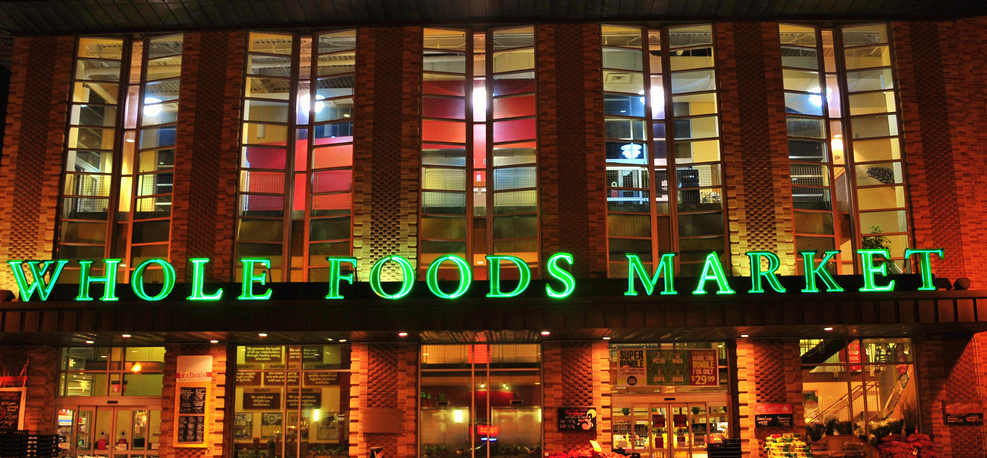
Whole Foods Poaching New Customers From Trader Joe’s, Costco, Walmart
We know that more people visited upscale grocery chain Whole Foods in the weeks after it became part of Amazon’s growing online and offline retail empire, but where did those people come from? Customer data shows that new visitors to Whole Foods stores were likely to be the wealthiest customers from competitors like Walmart, Costco, and Trader Joe’s. [More]

Whole Foods Seeing More Shoppers In Wake Of Amazon Merger
Maybe it’s the slightly lower prices, or the curiosity of seeing Amazon Echo speakers being sold in the produce aisle, or even the ground beef sculpted into Amazon logos — whatever the reason, it looks like Whole Foods is seeing a boost in foot traffic in the weeks since it officially became part of the Amazon family. [More]
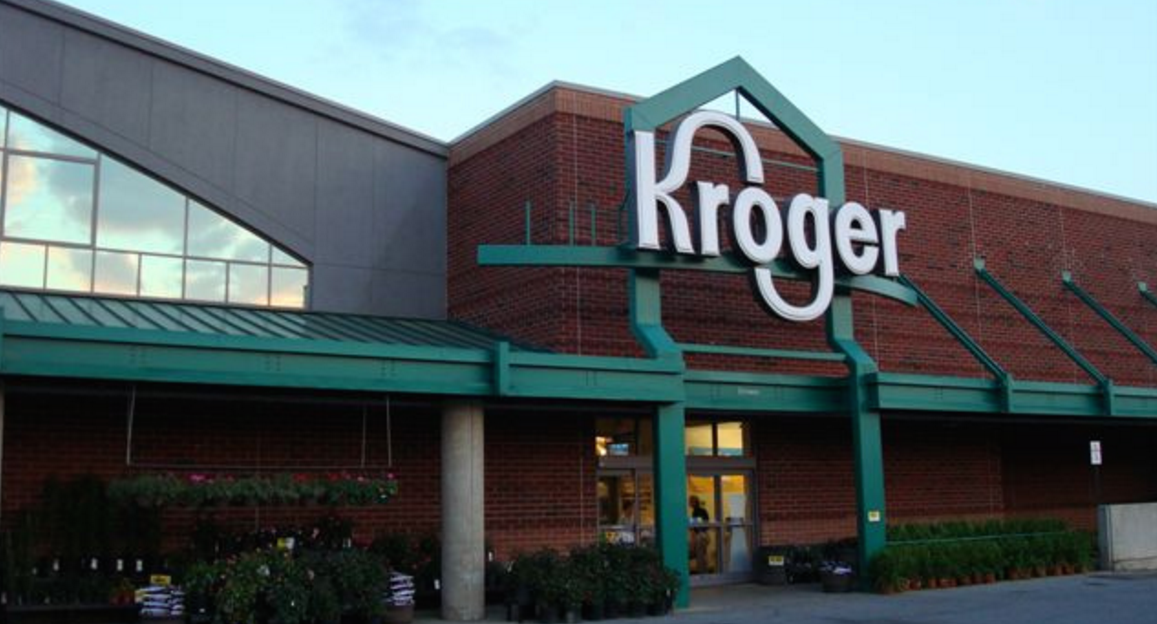
Kroger CEO Says He’s Not Surprised By, Or Scared Of, Amazon Buying Whole Foods
With over 3,800 stores and more than $110 billion in revenue, Kroger is the second-largest retailer in the U.S., behind Walmart. Normally, a company of this size would not fret about Whole Foods’ relatively paltry 460 stores being sold off to a company whose bricks-and-mortar footprint consists mostly of a few bookshops. But because that buyer is Amazon, some are expecting Kroger to be worried. [More]
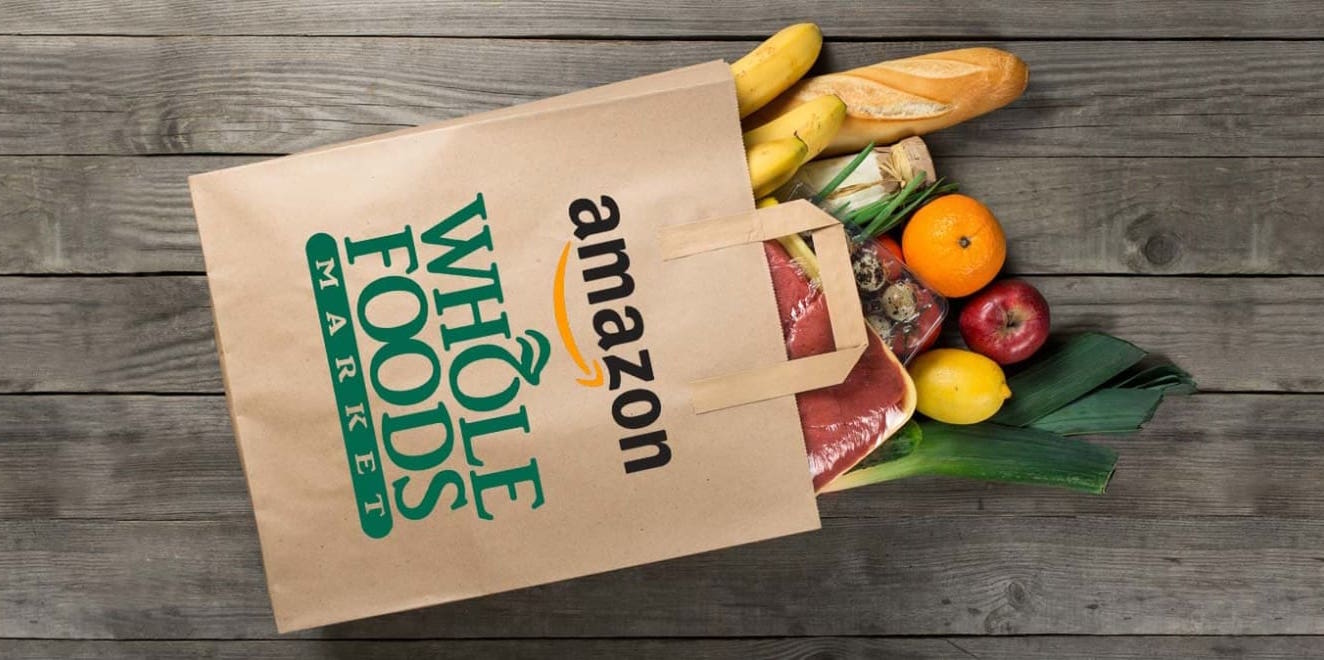
Amazon’s Likely First Move At Whole Foods: Bring In Warehouse Robots
When Amazon and Whole Foods announced that they were getting hitched in the corporate sense, the benefits for both sides were obvious. Amazon would acquire its way into a grocery distribution network and hundreds of stores with upscale customers, and Whole Foods would get a parent company at the forefront of retail technology. What’s likely to be first up for Whole Foods? Warehouse robots. [More]
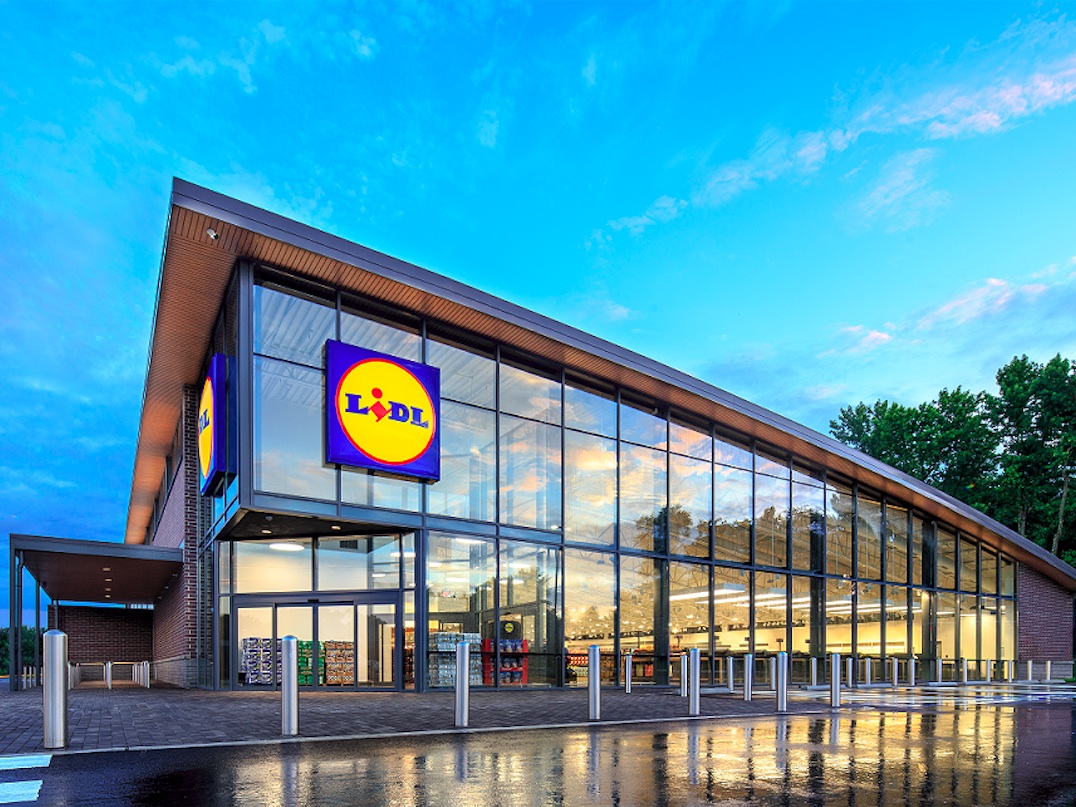
Imminent Arrival Of Lidl Supermarkets Means U.S. Stores Are Renovating, Lowering Prices
Walmart and Aldi are currently locked in a price war for national grocery domination, with Walmart demanding price cuts from suppliers to help it cut prices for consumers in turn. Yet the company’s price war will soon have a new front in some markets, as another German discount grocer, Lidl, opens its first U.S. stores. Both Walmart and Aldi, as well as other stores nearby, are figuring out how to beat a rival that hasn’t opened any stores on this continent yet. [More]
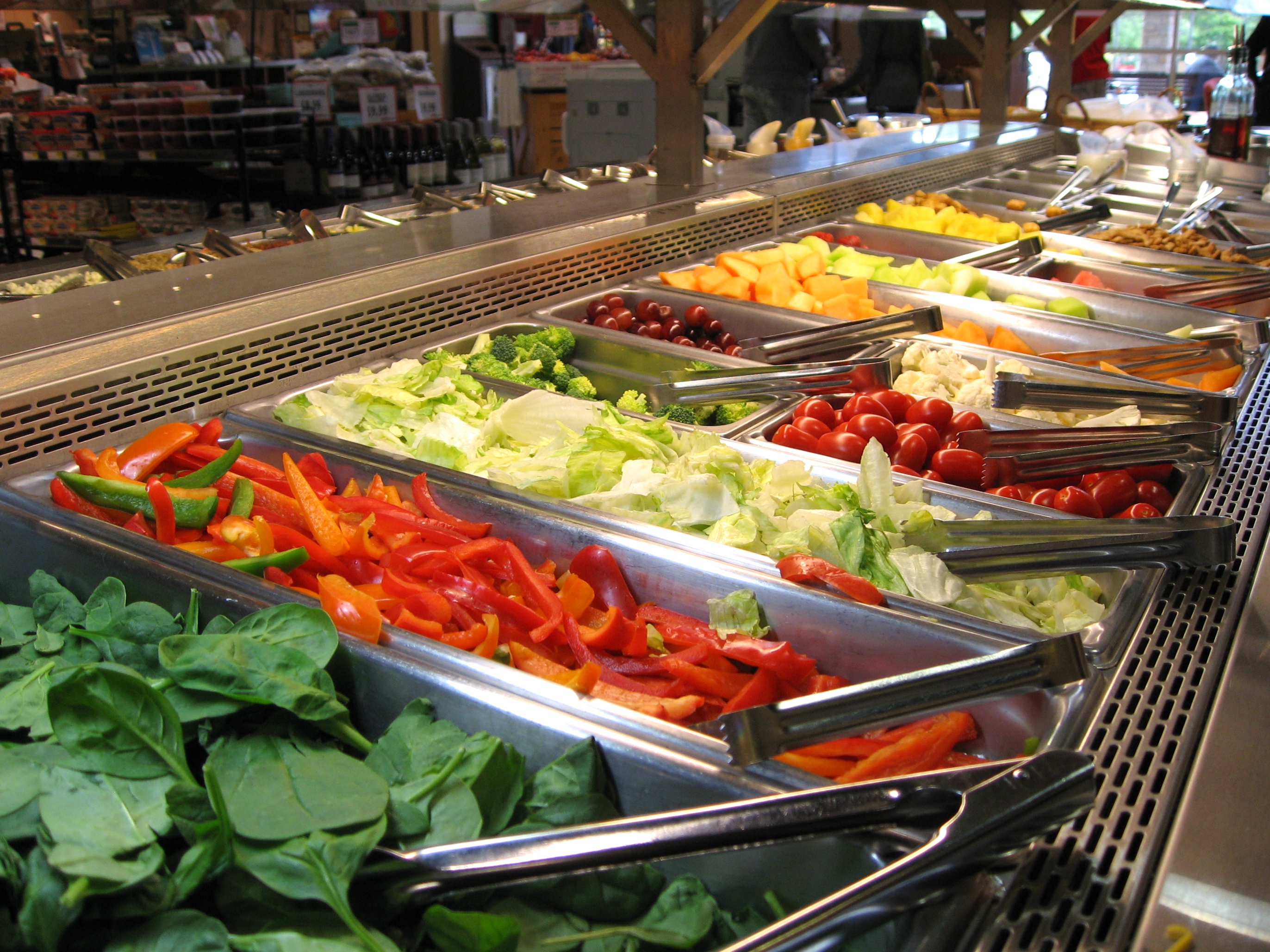
People Eat In Supermarkets Now, But Please Stop Calling Them ‘Grocerants’
Supermarket delis have expanded in size and broadened their offerings, and there’s apparently a term for this in the food industry. It’s “grocerant.” You know, grocery store + restaurant, where you can combine picking up dinner and doing your shopping. [More]
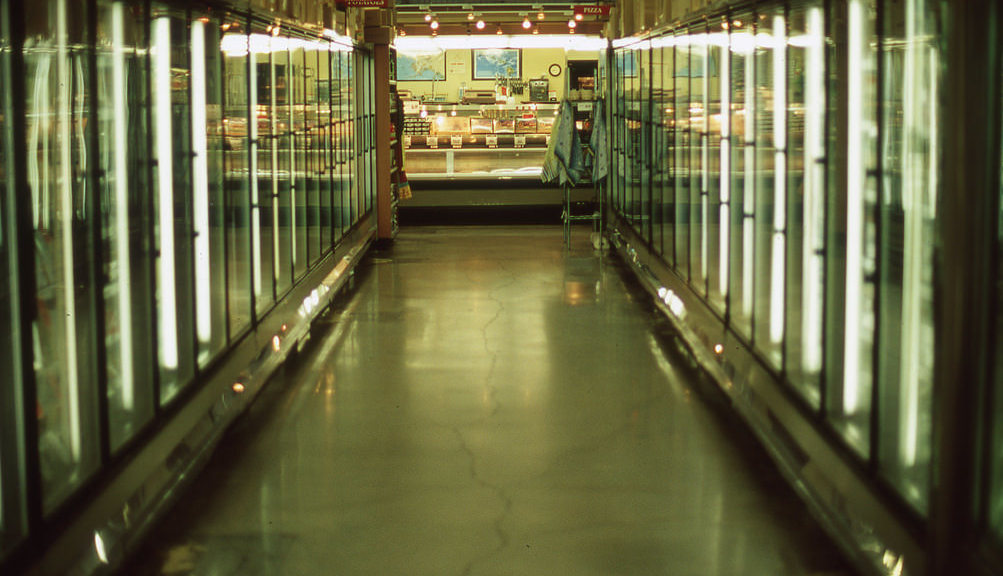
Why Are Malls Trying To Fill Empty Spaces With Supermarkets?
To stay viable into the future, malls need to find tenants with businesses that are difficult or impossible to move online. That includes things like parties, doctors’ offices, and a wider variety of restaurants, some of them inside already existing stores. Another business that could fit nicely into a vacant mall anchor slot: a grocery store [More]
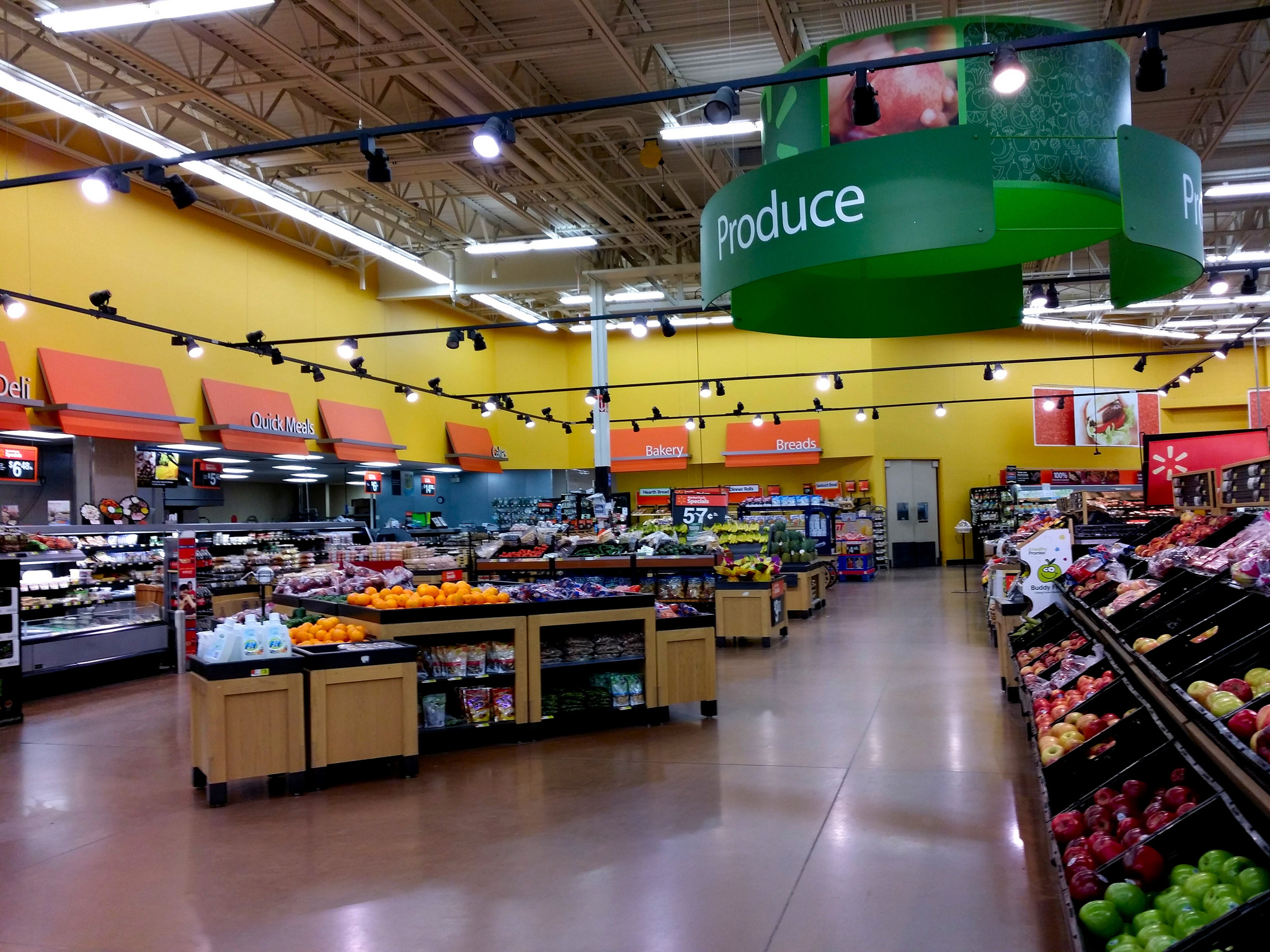
Walmart Launches Price War With Aldi, Demands Price Cuts From Suppliers
Grocery sales comprise over half of Walmart’s receipts, so it makes sense that the mega-retailer wants to keep its prices competitive. In at least 1,200 of its stores, though, the chain is reportedly slashing prices in an effort to give customers a reason to shop at Walmart instead of discount grocer Aldi and other supermarkets. [More]

Scientists Reinstalling “Tasty” Genes In Supermarket Tomatoes
Researchers recently confirmed what food storage experts had long believed: Refrigerating tomatoes causes them to lose flavor. Now scientists are hoping that some genetic tinkering will turn blah supermarket tomatoes into flavorful rivals to their farm-fresh cousins. [More]
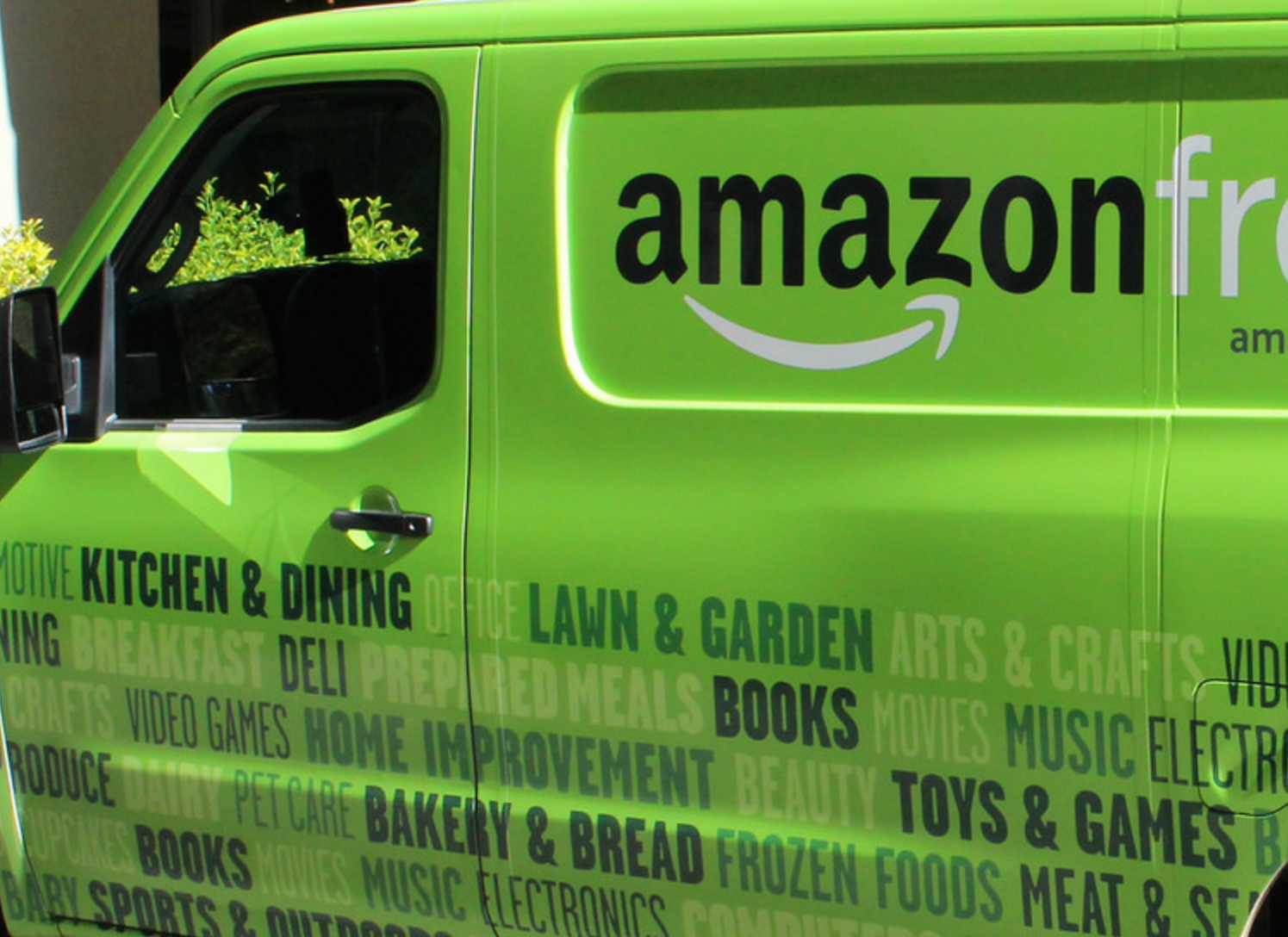
4 Reasons Amazon Is Willing To Accept Food Stamps For Grocery Delivery
This year, some Americans participating in the Supplemental Nutrition Assistance Program (SNAP, aka “Food Stamps”), will be able to pay for groceries online through Amazon, FreshDirect, and some supermarket chains. Given that food delivery services have thus far tended to cater to higher-income consumers, why are these companies — and in particular, Amazon — eager to accept SNAP payments? [More]
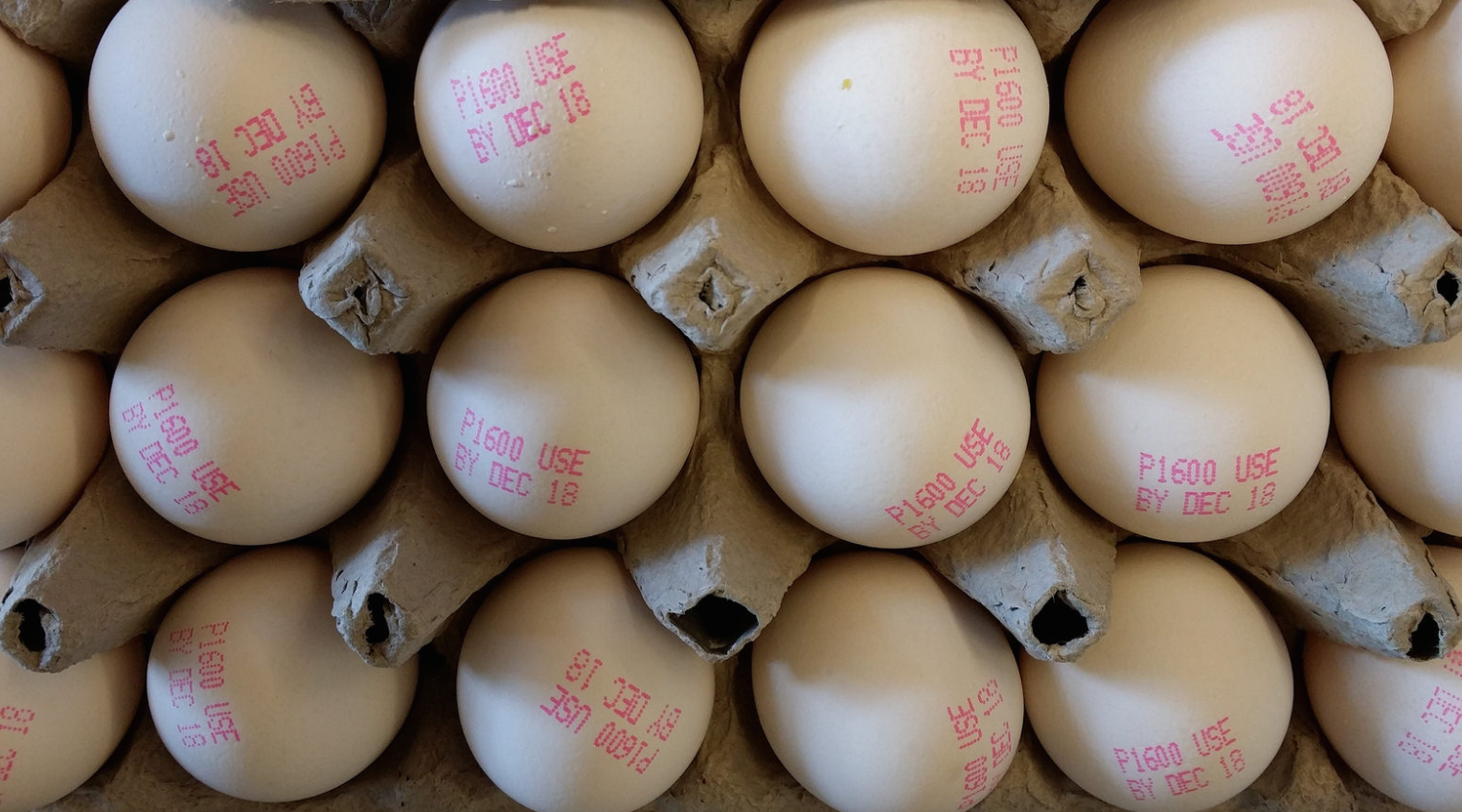
USDA Asks Meat, Dairy Companies To Replace Confusing Expiration & Sell-By Labels With “Best If Used By” Date
Though almost every food item you buy at the supermarket has some sort of expiration date — under the headers of “Sell By,” “Use By,” “Use Before,” “Best Before,” among others — printed on the packaging, the truth is date labels are largely voluntary and determined by the food producers. If handled properly, most foods are perfectly safe to eat after whatever date is on the label, but stores and consumers throw away an inordinate amount of food every year simply because that date has passed. In an effort to reduce food waste, the federal government is hoping to encourage meat and dairy producers to all use the same phrase: “Best If Used By.” [More]

Even $3 Million Isn’t Enough To Get Supermarkets In Dallas’s Food Deserts
In a desert, there’s not very much water to go around. In a food desert, the problem is groceries: reliable, affordable supermarkets with fresh, healthy, decent-quality offerings get farther apart and harder to find as you head into some regions. One Texas city has been trying to solve the problem for thousands of its residents by ooffering large amounts of cash to supermarket retailers, but even the lure of free millions has resulted in no takers. [More]
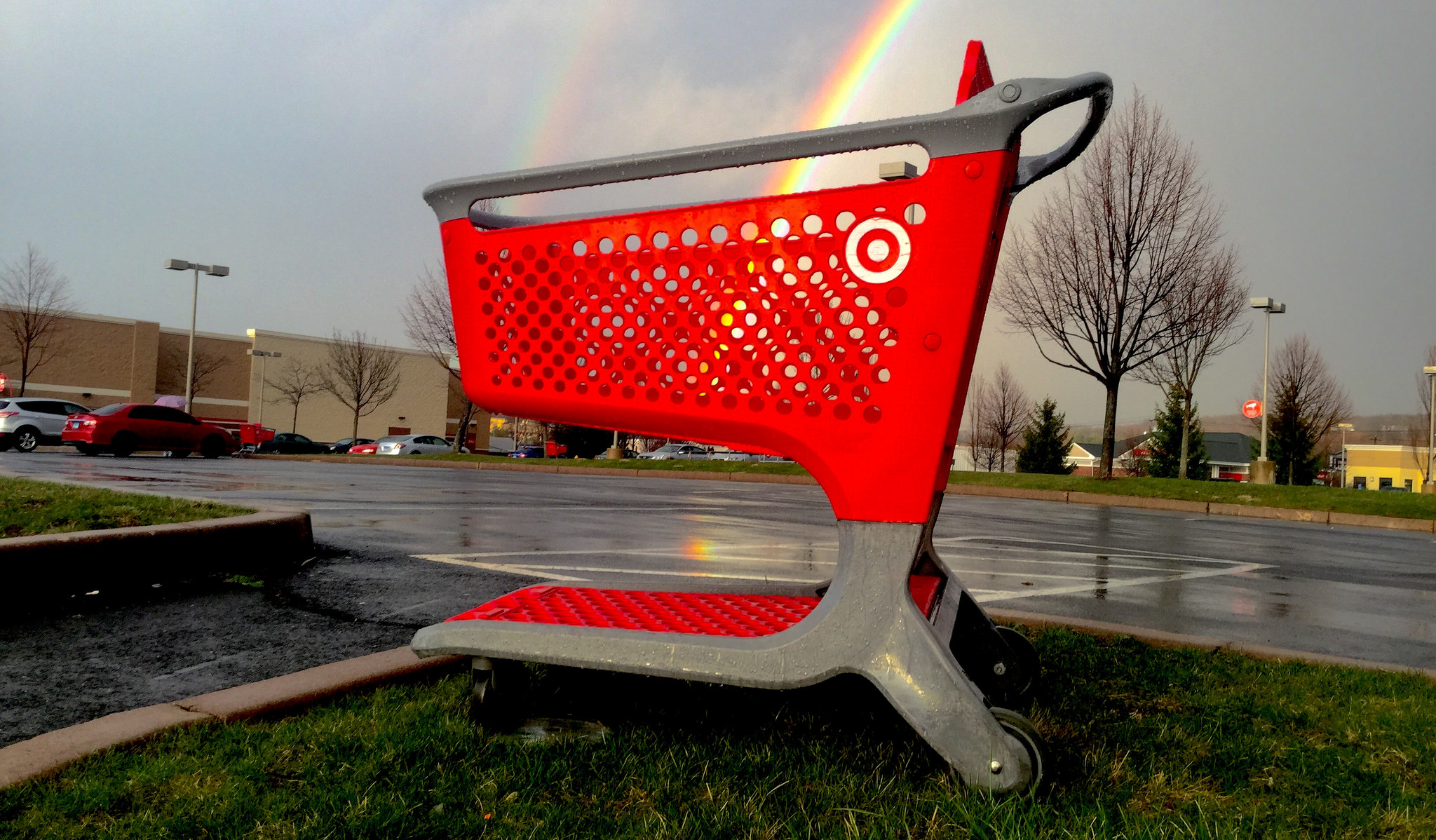
Head Of Target’s Grocery Business Steps Down Amid Lackluster Results
The Target executive tasked with turning around the retailer’s so-so grocery sales is stepping down after less than two years on the job. [More]
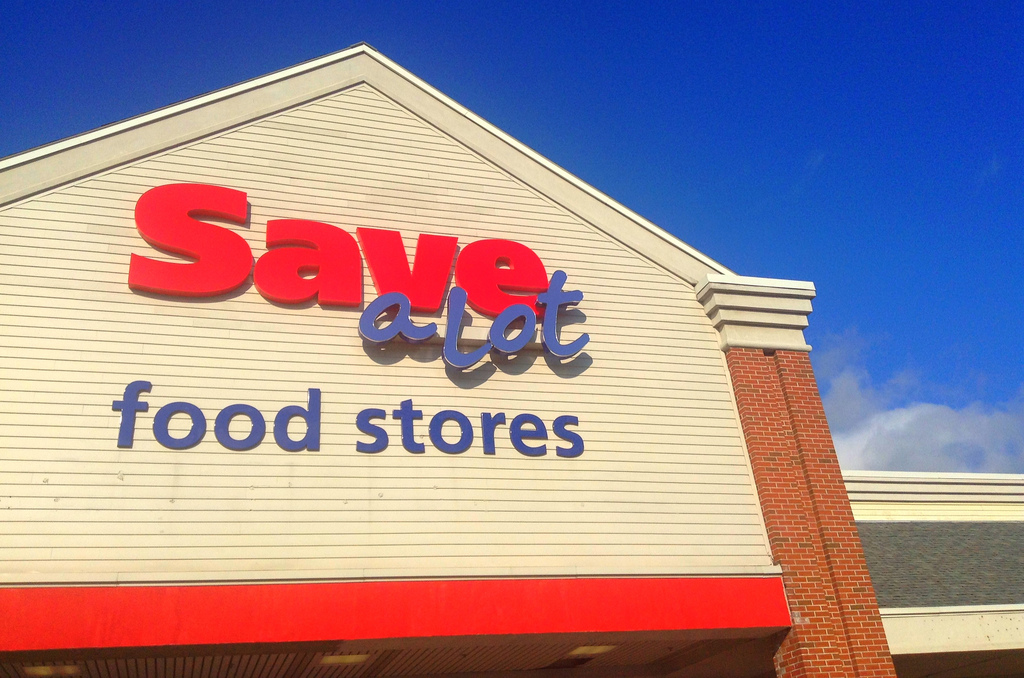
Supervalu Selling Off Save-A-Lot Supermarket Chain For $1.4B
Supermarket operator Supervalu will have one fewer chain in its portfolio soon, after announcing that it’s selling off discount grocer Save-A-Lot to a Canadian investment group for $1.37 billion. [More]
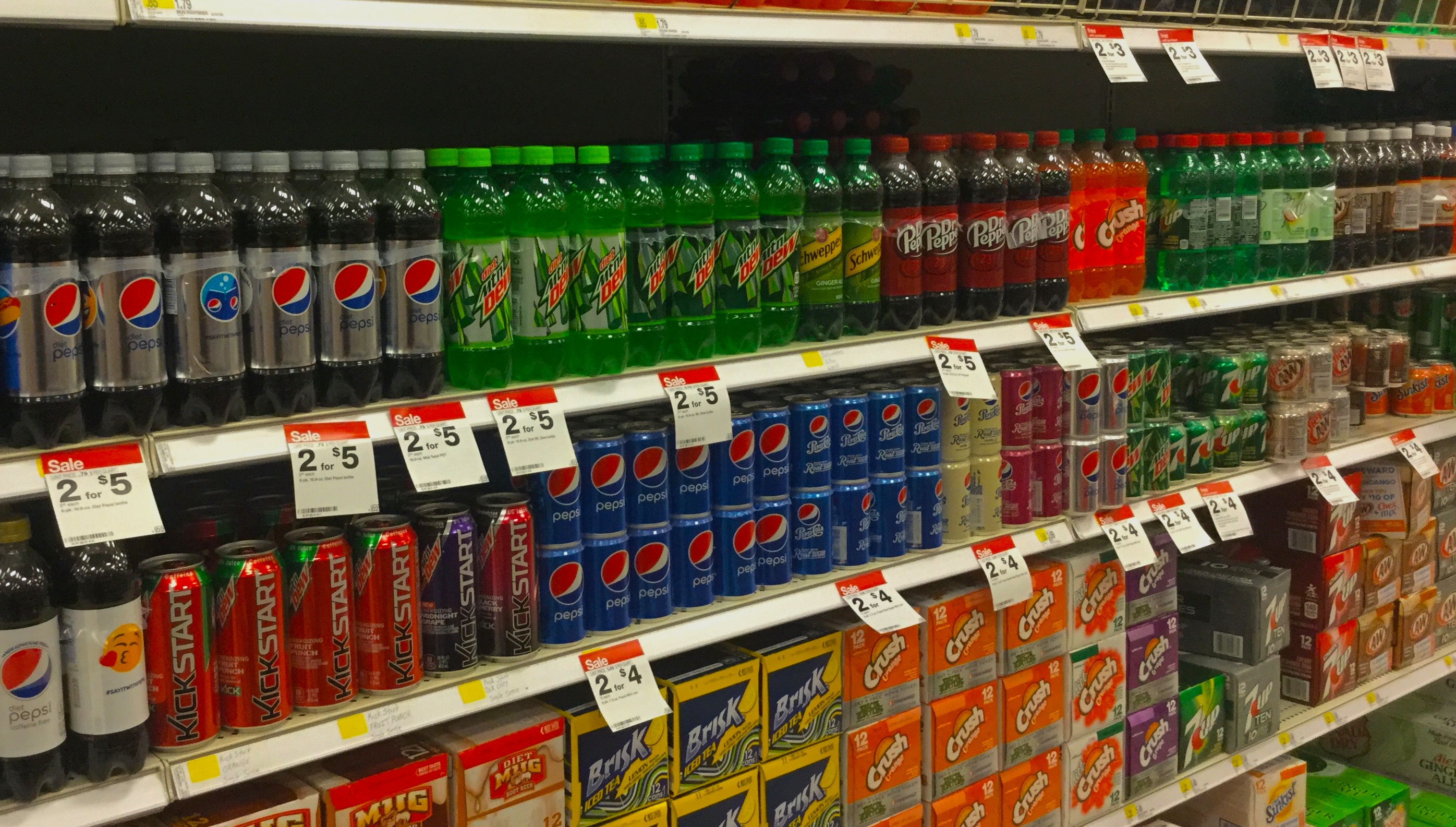
Beverage Industry Takes Philadelphia To Court Over Soda Tax
A few months back, the city of Philadelphia became just the second city in the U.S. to successfully pass a tax specifically on soft drinks, adding $.015/ounce to the price a distributor pays for sodas — including diet drinks — and other sweetened beverages. As expected, the beverage industry has fired back with a lawsuit challenging this tax, alleging that it illegally duplicates a state tax and diminishes the purchasing power of low-income Philadelphia residents. [More]



